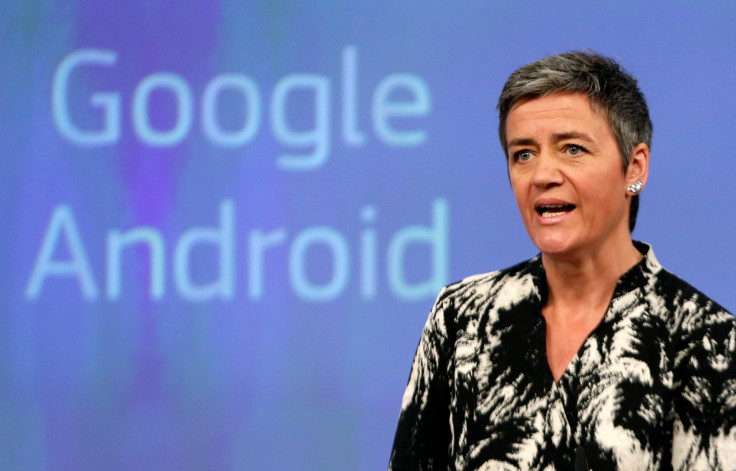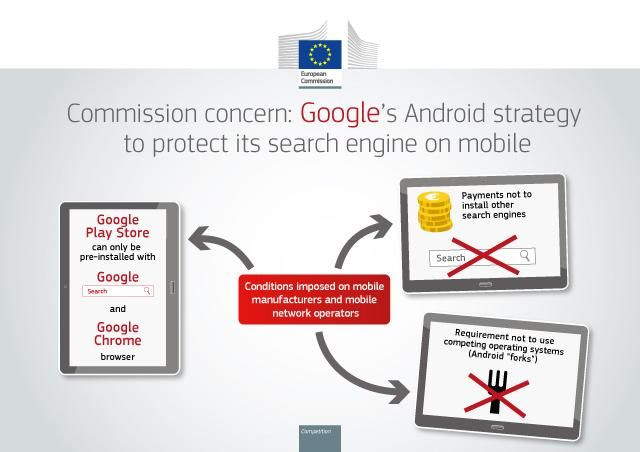EU Formally Files Antitrust Charges Against Google For Hindering Competition With Android

Following a yearlong investigation into Google's Android operating system, the European commission announced Wednesday it is formally charging the U.S. tech giant for its practice of forcing smartphone manufacturers and mobile operators to bundle its apps when they want to use Android. The antitrust charges could bring fines of up to $7.5 billion for Alphabet Inc., the California company that owns Google.
The EU’s competition chief, Margrethe Vestager, made the announcement one year after Google was formally charged over the systematic favoring of its own comparison shopping product in its search results pages.
"We believe that Google’s behavior denies consumers a wider choice of mobile apps and services and stands in the way of innovation by other players," Vestager said in the statement.
Google has 12 weeks to formally respond to the Statement of Objections and can request an oral hearing, Vestager said.
Google strongly denies the charges. "We take these concerns seriously, but we also believe that our business model keeps manufacturers’ costs low and their flexibility high, while giving consumers unprecedented control of their mobile devices," Google General Counsel Kent Walker said in a blog post.

The investigation into Android opened last April, with the commission looking at whether Google illegally hindered the development and market access of rival mobile applications or services by requiring or incentivizing smartphone and tablet manufacturers to exclusively preinstall Google’s own applications or services.
Google does not make any money from licensing its Android operating system — which is open source and free for anyone to use — but it does force manufacturers to sign agreements in order to access services like its app store, Google Maps, Gmail and search. Google requires such contracts as it makes money from selling ads through these services, and with smartphones increasingly becoming people's primary computing device such contracts have become all the more important.
Vestager said that the open source nature of Android was not what was worrying the commission, but that Google had abused its dominant position in the market at the cost of other companies. One of the key aspects of the commission's complaints relates to making Google the default search engine on Android, which Vestager says means that competing search providers don't have a chance to access the market.
The EC says Google has breached competition rules in three specific areas:
- Requiring manufacturers to preinstall Google Search and Google's Chrome browser and requiring them to set Google Search as default search service on their devices, as a condition to license certain Google proprietary apps.
- Preventing manufacturers from selling smart mobile devices running on competing operating systems based on the Android open source code.
- Giving financial incentives to manufacturers and mobile network operators on condition that they exclusively preinstall Google Search on their devices.
In Europe’s five biggest markets (France, the U.K., Spain, Germany and Italy), Android holds more than 70 percent market share, according to the latest figures from Kantar Worldpanel ComTech, while its global share is over 80 percent, according to research company Gartner.
Google is just one of a number of major U.S. tech companies being investigated under Europe's tough competition laws. While the yearslong investigation into Microsoft concluded in 2007 with fines totaling over $2 billion, there are ongoing investigations into Amazon's e-book policy, dual investigations into how chipmaker Qualcomm could be illegally leveraging its dominant market position and a high-profile investigation into Apple's tax affairs in Ireland.
© Copyright IBTimes 2024. All rights reserved.






















